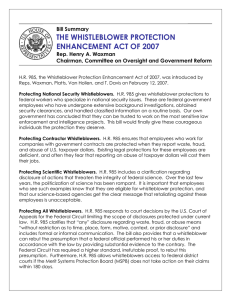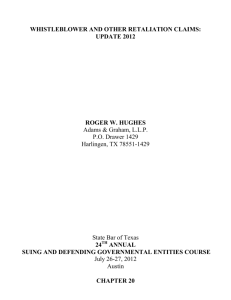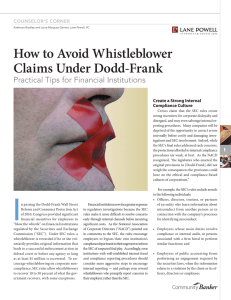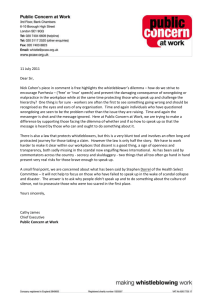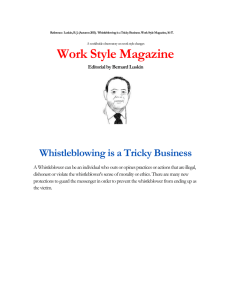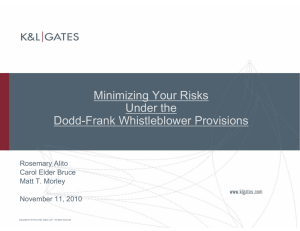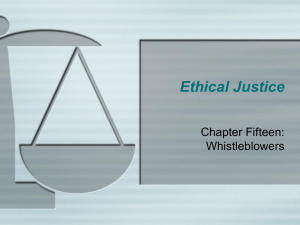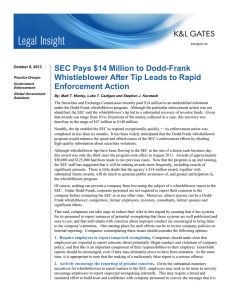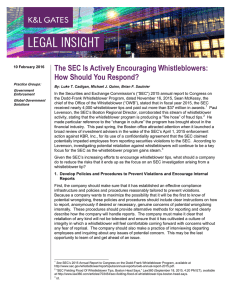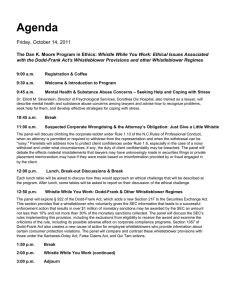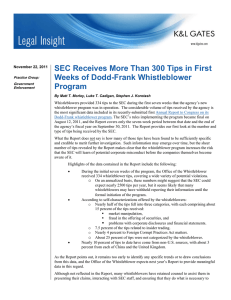Program Slides Whistleblower - Association of Corporate Counsel
advertisement
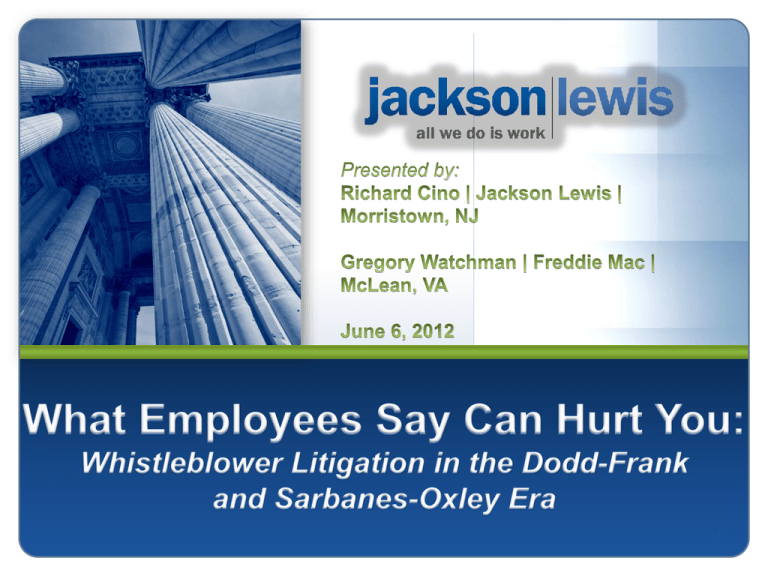
1 What is the DFA? How does it affect employee whistleblowers? Why should companies with existing whistleblower programs be concerned? 2 Wall Street & banking crisis. AIG bail out and the “Too Big To Fail” dilemma. Lehman Brothers demise. Bernie Madoff scandal. Mortgage crisis. 3 Response to public demand for greater oversight of the U.S. financial sector. Enhanced regulation of the mortgage market. Continued dependency on employee whistleblowers. Signed into law on July 21, 2010. 4 An entirely new whistleblower framework. Direct reports to the Securities & Exchange Commission. Specific regulatory framework for the processing of such whistleblowers claims. 5 Lengthened the statute of limitations period (from 90 to 180 days) to file a complaint. Confirmed right to a jury trial. Clarified that SOX applies to wholly-owned U.S. subsidiaries. Invalidates releases and arbitration agreements as to SOX claims. 6 Mandated compliance programs. Requires enhanced internal reporting mechanisms. Elevation of the employee whistleblower. Elevation of the board—Audit Committee. 7 Defined what are effective compliance programs. Internal monitoring and reporting programs. Enhanced organizational compliance. 8 More than SOX? Focus on compliance and self-governance. Self-reporting to the SEC via employee whistleblowers. Enhanced regulatory review. Effect on internal investigations. 9 Detailed SEC whistleblower reporting regulations. Bounty program providing 10-30% of the SEC’s monetary recovery. Protection from retaliation. The ability to go straight to federal court. Leading to… competition with the company’s internal hotline procedures. 10 Confirm whether both apply to your organization. Both require an effective internal compliance program. Both may occur at the same time. Both will require prompt response and corrective action. 11 Who are they? What do they do? What do they receive? Who benefits? 12 What does it say about making reports? Does it invite internal reporting? Does it protect employee from retaliation? Does it explain what the organization will do? Does is manage expectations? 13 How has the organization responded to internal complaints previously? Is there a history of timely investigation? Is there history of corrective action and continuous improvement? 14 Be clear about where reports can be delivered. Confirm the Ethics Committee and train as needed. Confirm anti-retaliation provisions and structures. Show appreciation for internal reports. Utilize redundant resources and external resources. 15 Be ready for direct reports to SEC. Establish an investigative/response team. 16 The developing federal court landscape. Challenging the protected activity. Challenging the retaliation. 17 Richard Cino Jackson Lewis LLP Managing Partner – Morristown, NJ Office (973) 451-6324 CinoR@JacksonLewis.com Gregory Watchman Freddie Mac Associate General Counsel (703) 903-3450 gregory_watchman@freddiemac.com 18 19
